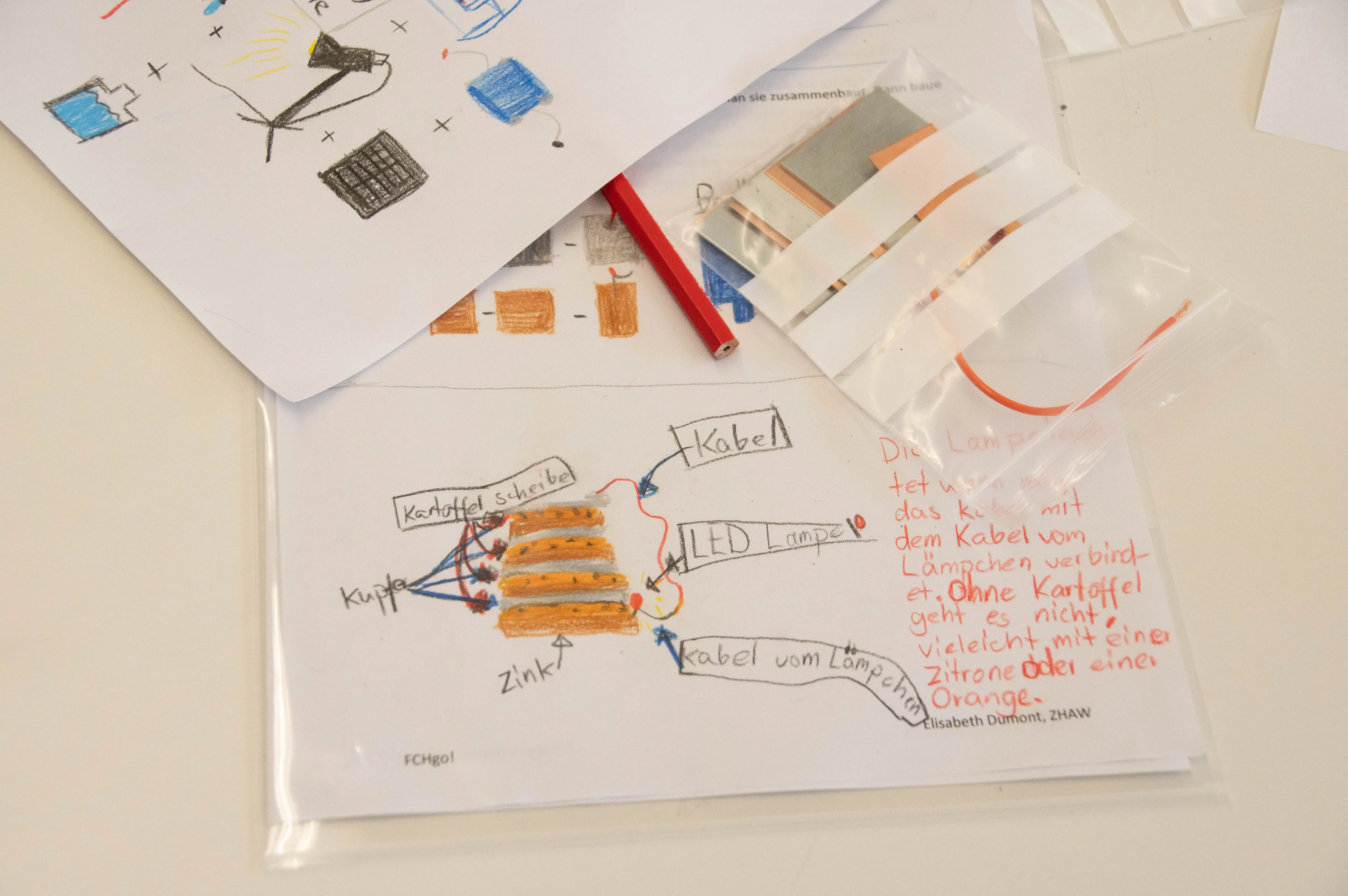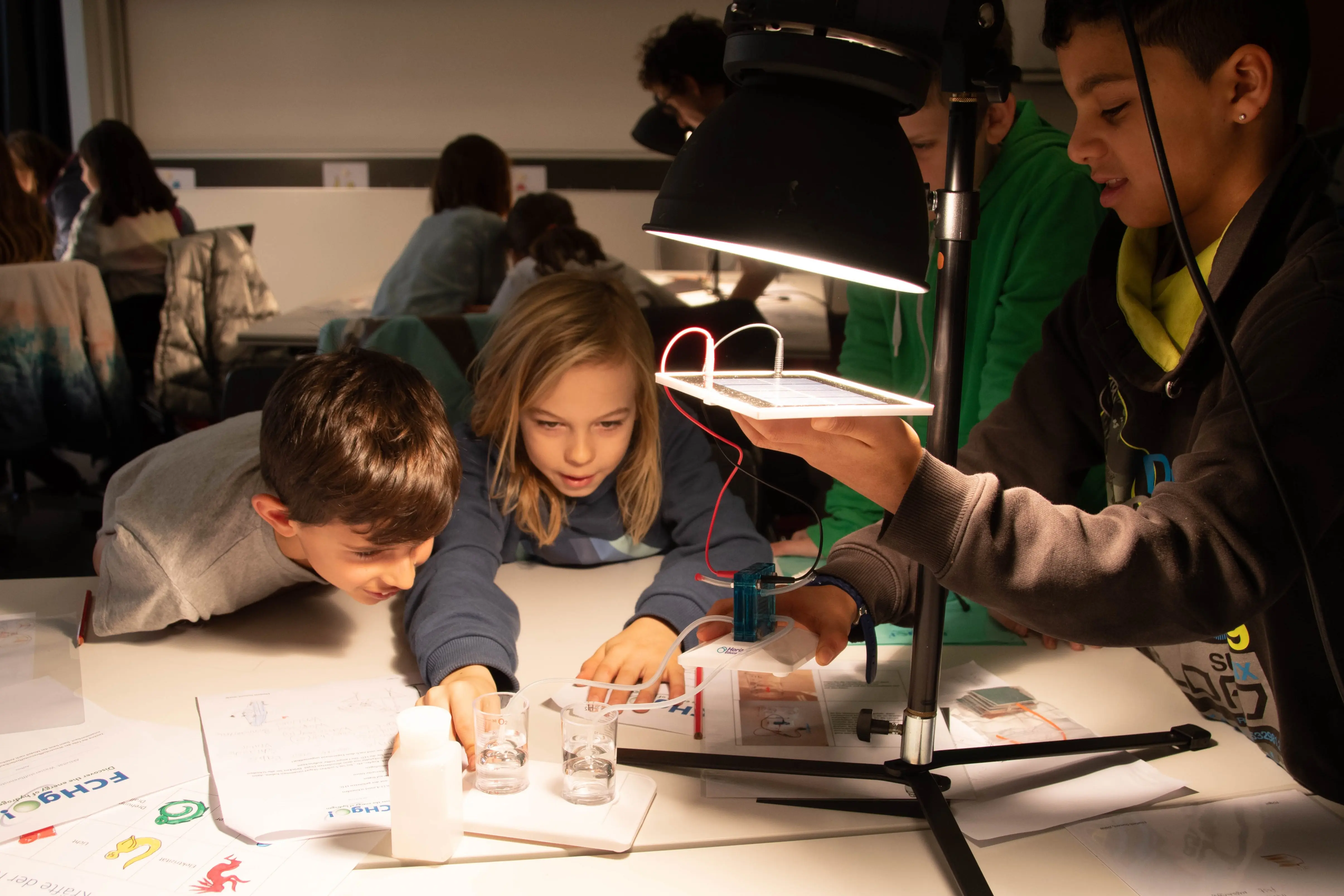EU project «FCHgo!»: Generating new energy in a playful manner
Hydrogen and fuel cells are popular when it comes to environmentally friendly energy generation. However, teaching children the principles behind such technologies isn't easy. The international «FCHgo!» project supports teachers in doing just this.

How can you generate energy in an environmentally sound manner? Experts are not the only ones concerned with this question. More and more children and adolescents are committed to ensuring a sustainable future. They want to learn by which means the energy transition can be managed. One possible way is the use of hydrogen and fuel-cell technology. For teachers, however, these topics are not easy to teach. «Primary school teachers often have not received in-depth training in physics and are therefore concerned that they will explain these technologies incorrectly», says Elisabeth Dumont, a lecturer in physics at the ZHAW School of Engineering. This is precisely where the «FCHgo!» programme comes in.
Learning materials from Winterthur for the whole of Europe

As part of the European research programme Horizon 2020, partners from five European countries are contributing to the project. The objective is to acquaint children with the fundamentals of energy generation using hydrogen. In international co-creation workshops, project participants designed the methods and teaching materials together with teachers, educators and fuel-cell experts. The ZHAW School of Engineering also contributed a video and a book. Both were developed by Hans Fuchs, who was a professor for physics for more than 30 years at the Zurich University of Applied Sciences in Winterthur. “For us, the narrative aspect of the teaching was very important”, emphasises Elisabeth Dumont. “Children should understand the principle rather than simply mastering the specialist terminology.” In addition to other teaching materials, a range of toolkits has been developed that allows for various experiments with hydrogen and fuel cells to be conducted.
Experimenting in the children’s laboratory

The entire project is aimed at children and adolescents between the ages of 8 and 18. At the ZHAW School of Engineering, «FCHgo!» is tailored to primary school students. The level of prior knowledge per student varies depending on the class. «We rely on the teachers here», says Elisabeth Dumont. «Their input is important in enabling us to structure the lessons in a comprehensible manner.» «FCHgo!» is also implemented in a very playful manner when school classes spend a morning in the children’s laboratory. Following a short introduction by means of the video, school children can immediately begin with the experiments. What do potatoes have to do with electricity? By building a potato battery, children learn how an electric current is generated and how it can be used to light up LEDs. They then continue with one of the «FCHgo! toolkits». With the kits, the children can power a propeller using just water and light. And finally, the students also learn that cars can be powered with hydrogen and a fuel cell. The key feature here: The only waste product produced by this kind of energy generation is water. Hydrogen technology thus offers a pioneering and environmentally friendly alternative to conventional electricity production.
Link to project page: https://fchgo.eu/
Participating institutes and centres:
Project partners:
- Free University of Bozen-Bolzano
- University of Modena and Reggio Emilia
- Nicolaus Copernicus University
- Technical University of Denmark
- Steinbeis-Europa-Zentrum
- InEuropa Srl
Financing: EU programme Horizon 2020
Project duration: 2019–2020